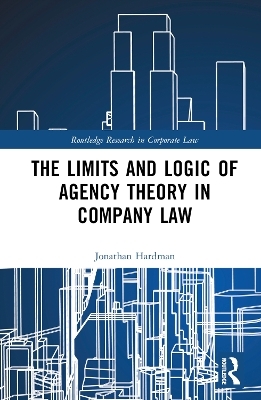
The Limits and Logic of Agency Theory in Company Law
Routledge (Verlag)
978-1-032-27540-6 (ISBN)
Agency theory is ubiquitous in company law. This book explores (a) the limits of such deployment, and (b) the logic of how to deploy it.
The book makes five linked arguments in respect of the limits of agency theory in company law. First, it argues that agency theory has become so broad that it can be used to analyse most human relationships. Such breadth, though, comes at the expense of legal clarity: as agency relationships cover such a broad range of relationships, there are no normative legal conclusions that can be drawn merely from identifying such a relationship. Second, it argues that we need to differentiate more specific concepts with clearer legal implications, such as externalities, and the particular manifestation of moral hazard that appears in insurance dynamics. Third, it argues that considerable amounts of existing company law theory - which is ostensibly built from agency theory - is in fact based on a series of hidden value judgments at each stage of the analysis. Fourth, it argues that company law theory should use agency theory less to rebalance the discipline: agency theory has become hegemonic, which is dangerous for the discipline, obscures company law’s role in establishing incentives, undermines accountability, and reduces company law’s autonomy.
The book then moves to the logic of agency theory and makes three arguments. First, it argues that we need to factor in the company, only apply agency theory to voluntary interactions, and foreground our value judgments when identifying agency relations to do it properly. Second, it argues that it is rational to incur agency costs when we perceive the benefits of doing so to outweigh the costs, meaning that agency costs can be facilitative and we should look to front-end them rather than universally minimise them. Third, it argues that this needs to be undertaken through mandatory laws.
Exploring the external limits and internal logic of agency cost analysis, this book will be of interest to academics, students, and researchers of corporate and company law.
Jonathan Hardman is a Senior Lecturer in Company and Commercial Law at the University of Edinburgh (Scotland), and has been a visiting academic at the Chinese University of Hong Kong and the University of Auckland (Aotearoa New Zealand). He was a corporate lawyer in private practice for 10 years before he swapped his suit for tweed and became an academic. Jonny’s research mostly focuses on argumentation structures within corporate law. He is one of the founding organisers of the Global Corporate Law Seminar Series. Further information as to his research can be found at www.hardmanlaw.co.uk.
1. Introduction
Part I: The Limits of Agency Theory in Company Law
2. The Ubiquity of Agency Costs
3. Delineating Agency Costs
4. The Evitable Dominance of Agency Cost Analysis in Company Law
5. A Need for Rebalance
Part II: The Logic of Agency Theory in Company Law
6. Corporate Agency Costs
7. Incurring Agency Costs
8. Resolving (Front-Ending) Agency Costs
9. Conclusion
| Erscheinungsdatum | 01.08.2024 |
|---|---|
| Reihe/Serie | Routledge Research in Corporate Law |
| Zusatzinfo | 2 Tables, black and white |
| Verlagsort | London |
| Sprache | englisch |
| Maße | 156 x 234 mm |
| Gewicht | 635 g |
| Themenwelt | Recht / Steuern ► Allgemeines / Lexika |
| Recht / Steuern ► EU / Internationales Recht | |
| Recht / Steuern ► Wirtschaftsrecht ► Gesellschaftsrecht | |
| Wirtschaft ► Betriebswirtschaft / Management ► Unternehmensführung / Management | |
| Wirtschaft ► Volkswirtschaftslehre ► Makroökonomie | |
| ISBN-10 | 1-032-27540-5 / 1032275405 |
| ISBN-13 | 978-1-032-27540-6 / 9781032275406 |
| Zustand | Neuware |
| Haben Sie eine Frage zum Produkt? |
aus dem Bereich


